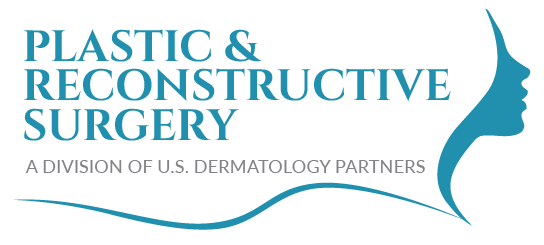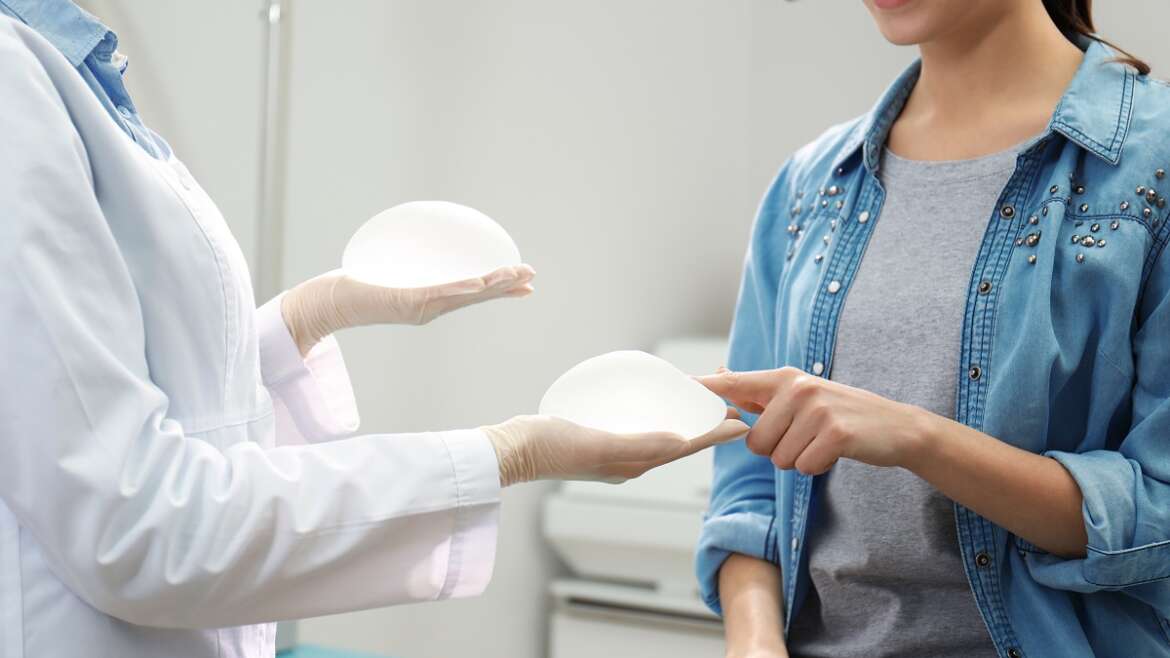If you’re on the fence about breast augmentation or you just don’t know if it’s the right option for you, it’s time to schedule a consultation. Before you go, it is best to have questions ready to ask your plastic surgeon. According to Dr. MyChi Le of Plastic and Reconstructive Surgery a Division of U.S. Dermatology Partners, “Patients should never schedule surgery lightly. Before you decide to move forward with breast augmentation, you should have a consultation with a qualified board-certified plastic surgeon to discuss your treatment options and determine if they are the best surgeon to provide your breast augmentation.” On this page, Dr. Le walks through the top 10 questions to ask your plastic surgeon before breast augmentation to ensure you make the best choice for your goals.
1 – What Are Your Credentials?
Before performing cosmetic surgery, your surgeon should meet a few requirements. First, they should hold a medical doctorate degree. They should also have advanced training in plastic surgery. Following their initial training and education, the plastic surgeon should hold a license to practice in your area. Many surgeons go the extra mile to receive board certification from the American Board of Plastic Surgery and are members of the American Society of Plastic Surgeons, the American Association of Plastic Surgeons, or other professional organizations. These organizations require certain training and continuing education for professionals who join. It’s an additional layer of evidence that the surgeon has the necessary skills to safely and effectively perform breast augmentation surgery. The surgeon may also receive certifications in the use of specific technologies or performance of certain surgeries to lend further credence to their skills.
2 – What Is Your Experience?
In addition to education, training, and certifications, surgical experience can make a big difference. Even a skilled plastic surgeon doesn’t necessarily perform breast augmentation procedures very often. It’s important to ask about the surgeon’s experience with this procedure. Specifically, you could ask how many breast augmentation surgeries they’ve performed and how often they provide these services. Many surgeons also have before and after images of their past procedures that you can look at to see the quality of their work and gain a better understanding of what you can expect from breast augmentation surgery.
3 – Am I a Good Candidate for Surgery?
According to Dr. Le, “During your consultation, the plastic surgeon will ask questions to ensure you’re a good candidate for breast augmentation. They’ll take time to carefully examine you, discuss your goals, explore your health history, and gather all the information they need to give you their best professional advice about breast augmentation. In general, these procedures aren’t recommended for people under 18 or those who are not already fully developed, though there can be rare exceptions. Patients also need to be in good health and not be pregnant or breastfeeding.”
4 – What Are My Treatment Options?
Many patients don’t know that there are multiple breast augmentation options available. The two main types are breast implants and fat transfers, but within these two categories of breast augmentation, there are numerous additional options to consider. Fat transfer may involve grafting fat from multiple or singular parts of the body and is usually reserved for very modest increases in size. It may also be performed in conjunction with implants to ensure the desired results are achieved. Breast implants may be made from a variety of materials and used to increase size, change shape, or improve the symmetry of breasts. Breast lifts can also be performed at the same time, if needed, especially as part of a ‘Mommy makeover’. Make sure to carefully explain your goals, so your surgeon can provide an effective surgical plan.
5 – What Should I Do to Prepare for Surgery?
Before surgery, you will likely need to perform a variety of preparatory tasks. Ask your plastic surgeon to walk you through what you may need to do in the days or weeks leading up to the procedure.
Some tasks you may need to complete before breast augmentation surgery include:
- Clinical Testing – blood tests, mammograms, x-rays, and other testing may be performed prior to treatment to ensure safety.
- Skip Anti-Coagulants – whether you’re taking prescription blood thinners, aspirin, other anti-inflammatory medications, or herbal supplements, you will likely be instructed to stop taking them two days or more before your surgery to reduce the risk of excessive bleeding.
- Adjust Medications – in addition to forgoing any medications that reduce blood clotting, you may also need to stop taking other medications or take antibiotics or other medications to ensure successful treatment.
- Stay Hydrated – drink plenty of water in the weeks leading up to treatment to ensure health and safety during and after treatment.
- Call in a Friend – make sure someone will be there to drive you to and from your appointment and stay with you for at least the first 24 hours after anesthesia.
- Set Up Your House – buy groceries in advance, make sure regularly used items are easily accessible and are within arm’s reach (not overhead reach), and get medications before you leave the hospital to ensure you can rest and relax after surgery.
- Take Time Off – make sure you have scheduled time off from work or school to fully recover after surgery.
6 – Where is the Surgery Performed?
In most cases, your surgeon needs to perform breast augmentation in a surgery center or hospital. That means you will not likely be receiving surgery in the same location where you meet the surgeon for your consultation. Make sure you know where the surgery will take place and get any information you need to prepare for surgery at this facility.
7 – How Long Does the Procedure Take?
When it comes to treatment time, Dr. Le says, “No two surgeries are exactly the same, so it’s important to talk to your surgeon about how long your procedure will take. Depending on its complexity, breast augmentation can take anywhere from two to four hours. In addition to surgery time, make sure you talk through the time it will take to be put under anesthesia as well as to wake up after surgery.”
8 – What Are the Associated Risks?
Like other surgeries, breast augmentation comes with risks.
Your surgeon can walk you through specific concerns before surgery, but some of the common risks associated with breast augmentation include:
- Adverse response to anesthesia (local or general)
- Temporary or permanent changes in sensation
- Excessive bleeding
- Suboptimally placed implants or transferred fatty tissue
- Leaking implants
- Scar tissue that is noticeable, tight, or causes distortion in breast shape
- Infection
- Lumps or calcification in the breast, including breast capsular contracture
- Unhappiness with results leading to a need for revision
9 – What Is the Recovery Like?
Before moving forward with any surgical procedure, you should understand what you will experience during recovery. Dr. Le says, “The time you spend recovering after your surgery is just as important as the time you spend preparing for the procedure. You may think that you’re ready to move forward with breast augmentation because you’re interested in the results, and you’ve found a great surgeon. However, the recovery from these surgeries can be extensive. Depending on the type of breast augmentation, you may be out of work or school for a week or longer. You’ll also have to forego exercise, heavy lifting, and other strenuous activities for several weeks as you heal.” Make sure you ask your surgeon about how long you will need to take off work or school, what symptoms you should expect, and how you should adjust your daily routine.
10 – How Do I Get Started?
Your first step will be scheduling a consultation. If you’re interested in working with the knowledgeable board-certified plastic surgeons at Plastic and Reconstructive Surgery, we would be happy to schedule a visit. Just take a few moments to complete our scheduling request form. Once we hear from you, a team member will be in touch to answer any questions you have before your visit and finalize the details of your appointment.

